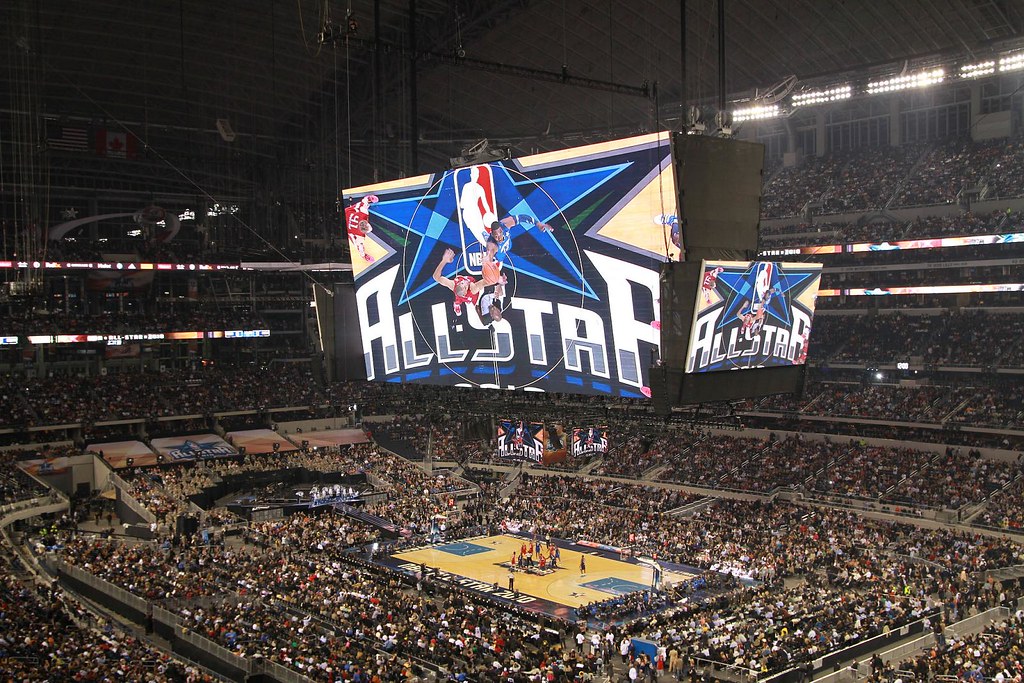Before I start on this topic, I would like to admit that I voted for rookie Tacko Fall to be an NBA All-Star. It was definitely one of the lower moments of my life and I am not proud of it. I bring this up because 947,377 other fans also decided to vote for him. The 7’ 5” center has played only 4 games, logged 22 minutes, and scored 17 points this season, and cumulatively in his career. For context, Pelicans rookie Zion Williamson scored in 3 minutes what Fall has logged in roughly half a season. There is an argument to be made for Fall’s lack of playing time lowering his numbers, but there certainly is no weight to an argument that he deserves to be an All-Star over the likes of Giannis Antetokounmpo, Joel Embiid, or Pascal Siakam. It is absolutely ridiculous that Fall finished higher in All-Star vote standings than Nikola Vucevic or Khris Middleton. However, his fan votes were so incredibly high that he got propelled into the stratosphere of the Eastern Conference Frontcourt rankings.
The reason why fans were able to raise his weighted score so high was due to how the All-Star voting system works. Current players and media members each account for 25 percent of the vote. Therefore, 50 percent of the votes come from either people well-versed in the NBA system or NBA players. The other 50 percent, then, comes from fan voting. Therefore players are ranked by their totals of fan votes, media votes, and player votes. The following formula then determines the final ranking:
Overall Rank = (Fan Rank * 2 + Player Rank + Media Rank) / 4
It’s important to note that prior to the 2016-2017 season, All-Star voting was entirely by fan vote, which essentially made All-Star voting a popularity contest. From this perspective, one is tempted to applaud the current system and call it fair and objective. And frankly, people who argue this are not wrong, as the current system does a better job determining who the most deserving players are. For example, in the 2018-2019 season, Derrick Rose finished second in fan voting. In the earlier system, that would have had him as an All-Star starter above James Harden, who averaged 36.8 points per game that season.
The current system does well to prevent insanely popular players from undeservingly becoming All-Stars. However, there is another way to think about these popular players. For this, let’s first take Tacko Fall as an example. Imagine him with 946,378 paper tickets next to him, each representing a fan vote. Each one of these votes that he owns is a vote that no one else in the Eastern Conference Frontcourt can have; they are locked into Tacko Fall only. Tacko Fall plays for the Celtics, who had two other significant frontcourt options in All-Star voting; Jayson Tatum and Gordon Hayward. If we make the safe assumption that roughly half of Fall’s votes came from Celtics fans, that means that about 500,000 votes that could have gone to either of their other two, much better players. Why does this matter? It’s because those 500,000 votes could have bumped both of the other Celtics players fairly significantly and given both a better shot of being an All-Star. If there are roughly one or two fan vote-sinks like Tacko Fall every year, it is reasonable to see a future where a deserving all-star fails to be recognized.
Okay, so we’ve established that the current system allows for poor or average players to prevent true all-stars from becoming recognized. The bigger question remains: why does All-Star status even matter? The game is nothing more than a barely competitive scrimmage, and the player who get voted in get even less time to recover mid-season than their counterparts. However, All-Star selections is one of the key accolades that determine an NBA player’s legacy. For an example of an NBA player who never got the recognition he deserved, let’s take a look at Dražen Petrović. Petrović is a Hall of Famer and one of the best European Basketball players in history. His number is retired by the Brooklyn Nets as he averaged over 20 points per game for them for two seasons. Not only that, but Petrović also nearly made the coveted 50-40-90 club with a scoring split of 51.8/44.9/87.0 back in the 1992-1993 season, missing out by only 3 percent on free throws. Despite all of his accolades, he never made an All-Star team and consequently, he is barely remembered by many modern viewers of the NBA. One of the main tools used to argue who is more valuable in the NBA is their All-Star status. However, unlike other metrics such as points, assists, or MVPs, the All-Star vote is much less representative of actual value due to the fan vote. One solution to this would be to stop treating All-Star selections like a representation of a players’ value; this would mean a worldwide shift in mentality would have to occur, which is not feasible. More reasonably, taking out the fan vote would be a better solution in making the All-Star voting process more objective.
I don’t claim that this is a perfect solution or something that would be popular among the NBA or the fans. Additionally, All-Star reserves are selected by coaches, which helps offset the issues previously presented. But for the health of the NBA and the legacy of its players, it is worth considering whether or not fan voting is truly beneficial to the league.




